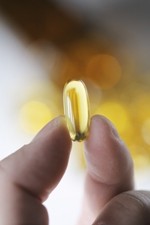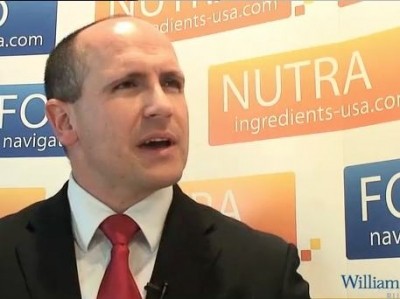Could the trade mount a legal challenge vs NDI guidance?

As the FDA points out at the start of the controversial document, guidance does “not establish legally enforceable responsibilities” but is instead designed to “describe the agency's current thinking on a topic and should be viewed only as recommendations”.
This meant mounting a legal challenge was difficult, pointed out Ullman, Shapiro & Ullman partner Marc Ullman.
“It’s another case of over onerous regulation in the form of guidance, which prevents the FDA from being sued.”
If the guidance is not substantially revised after the 90-day comment period, he said, “there is no real legal recourse unless the FDA takes action against a company [for failing to adhere to the guidance] and we get a trial.
“All the industry can do in the meantime is apply political pressure.”
Is the guidance consistent with the law it seeks to clarify?
Council for Responsible Nutrition (CRN) chief executive Steve Mister said: “It may be that the FDA will enforce its interpretation of the guidance by bringing a case against someone that would enable us to challenge it in court. But we could also ask Congress for clarification over whether the FDA has exceeded its authority under the statute (DSHEA).”
In the meantime, the trade had to use the 90-day comment period to make the case to the FDA that the additional burdens the guidance placed on industry did not increase consumer safety, said Ashish Talati, a partner at law firm Amin Talati.
“I expect the industry is going to push back very hard on this, and I would urge all stakeholders to submit comments.”
De facto pre-market approval system
The FDA did not seem to appreciate that the NDI process was intended by Congress “to be an actual notification system, not a pre-approval process run according to arbitrary rules set up by the FDA”, claimed the Alliance for Natural Health USA.
“In these proposed rules, the FDA has effectively created a de facto pre-market approval system without any of the protections of such a system. In general, the draft guidance creates a process that is extremely burdensome and redundant and is impossible for the FDA to realistically implement anyway.”
Natural Products Association vice president of scientific and regulatory affairs Cara Welch added: "We believe the draft guidance does not match Congress’s clear intent that products made from ingredients on the market prior to DSHEA should remain on the market.
"The FDA is asking for far more from the industry to prove that an ingredient was on the market before 1994 than most makers can probably produce. That was not the intent of DSHEA. These requirements will reduce ingredients meeting the established grandfathered status to a regrettably small number."
Lawyer: ‘I’ll recommend self-affirmed GRAS in lieu of NDI filing’
However, the fact that the FDA has now spelt out that it will accept ingredients that have been self-affirmed as GRAS (Generally Recognized as Safe) in lieu of a new dietary ingredient (NDI) filing was good news, argued Talati.
This did not impress Ullman: “I am flabbergasted that FDA apparently will accept a self-GRAS without notification to FDA in lieu of the NDI filing.”
However, Talati said: “I wouldn’t say that this is actually new per se. It’s just that the FDA has never really spelt this out before. It’s always been GRAS for food and NDIs for supplements, and even though a lot of the data might be the same, you make separate filings.
“But now the FDA is making it clear that if you have GRAS [self-affirmed or affirmed by the FDA], you may not have to make an NDI filing as well if you want to use the substance in supplements as well as foods.”
The self-affirmed GRAS process allows firms to conduct a safety assessment of a proposed food substance and self-affirm that it is safe using a panel of qualified experts.
While the safety requirements were equally if not more rigorous for GRAS as for NDI filings, “at least with self-affirmed GRAS you are in control of the process, not the FDA”, said Talati.
“I’ll be recommending to some of my clients to go for self-affirmed GRAS if they can. Not all ingredients will qualify, but going for this may be easier than filing an NDI notification.”








